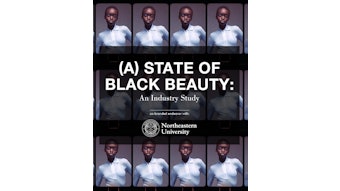With nearly 30 years of experience in the fragrance industry, Camille McDonald, Bath & Body Works’ president of brand development, kicked off GCI magazine’s 2008 Fragrance Business Conference at HBA in New York City on Wednesday, September 10, with an encouraging keynote speech, “Jump-Starting the Fine Fragrance Market.” The mega-brand builder and master brand positioner has used customer-centric visions throughout her career, which includes having served with Ralph Lauren and Michael Kors, among many other fragrance brand staples.
“You don’t fool around with epiphanies,” McDonald began. With the fragrance industry rushing to produce new product launches and licenses, she noted the slow moving “needle of growth” for the market, encouraging her audience to brainstorm toward epiphanies for the future success of the entire fragrance industry.
McDonald’s first game-changing suggestion came in the form of an analogy. “The customer is the maestro of this industry,” she said. “Not me. Not you.” For McDonald, taking on the role of a fragrance curator—a conduit and stage setter for the customer’s fragrance “script”—helps her unlock market potential. In her opinion, giving the fragrance customer power will boost the industry to the next level, at heights as greatly blooming as the fashion industry. “We must identify how she’s thinking and behaving, and feed it,” McDonald said, urging fragrance marketers not to force promotion on customers, rather reflect their emotions her. “Fragrance is completely an emotional decision,” she said. “It can only be self-generated.”
While McDonald’s epiphanies would follow, she first referred to another person whose beliefs strongly resonated with her. Quoting Christian Brosius, artist and perfumer of CB I Hate Perfume, McDonald said: “Perfume is too often an ethereal corset, trapping everyone in the same unnatural shape.” She continued with her own call to action: “Allow our customer the luxury of her own vision.”
Wowed by the overwhelming 75% of fragrance industry sales stemming from designer and celebrity brands, McDonald suggested companies instead value more of the customer’s signature. “Such [designer and celebrity] brands should and will always have their place, but if they dominate the market, it disconnects the customer from the fragrance category.” McDonald added: “We may be imposing emotion.”
With a saturated retail market, even fine department store fragrance shopping has become a chore, according to McDonald. Instead, she urged, perfumers and fragrance companies should try following three key, customer-centric cues that are currently evident in other industries. First, tangibility is key. “Immediately offer the customer promised results—something for her to connect with,” McDonald said. Second, accessibility on a global level will help raise the bar and help the customer judge products and ingredients so she can buy what she wants, how she wants it. Customization of design is also important, according to McDonald. Lastly, she said, “leverage the thrill of the hunt for the bricks-and-mortar retail experience.” Current examples of retail outlets executing this step correctly, she said, are Trader Joes and The Container Store, among others.
So, after McDonald’s observations of the fragrance industry, she continued with several possible solutions, in accordance with her three key points. For tangibility, she suggested members of the industry balance fragrance names with their actual olfactive contents, similar to how Bath & Body Works names its products. “What it smells like matters first,” she said, adding that this particular step could also make fragrance ancillary products, such as body lotions, more creative. For accessibility, she suggested companies launch avenues for instant, global informational access. “What’s inside—the ingredients—matters more!” she continued.
And while curating the fragrance experience, McDonald added that companies should “bake the thrill of the hunt in the shopping experience,” similar to how Sephora’s niche products are now available in JC Penney department stores, and Space NK is present in Bloomingdale’s. “Tell emotional stories at the point of sale,” McDonald said. “But don’t dictate…. What’s the occasion, and how will it make her feel when she wears it? Frame fragrances for moments in her life, such as ‘prom fragrances’ or ‘snowed-in, cocoon fragrances.’” An additional idea McDonald discussed in her keynote speech was an embedded, in-store blog option that would allow customers to communicate with each other in real-time while shopping for fragrances.
During the end of her speech, however, McDonald summed up the success of Bath & Body Works, as well as another customer-centric brand, CK One, which “shattered olfactive, demographic and positioning paradigms” with its gender-neutral, emotional canvas. According to McDonald, the fragrance industry needs more of such innovative ideas, bringing together tangible, accessible, customizable and thrilling fragrance experiences for the ever-evolving consumer.










